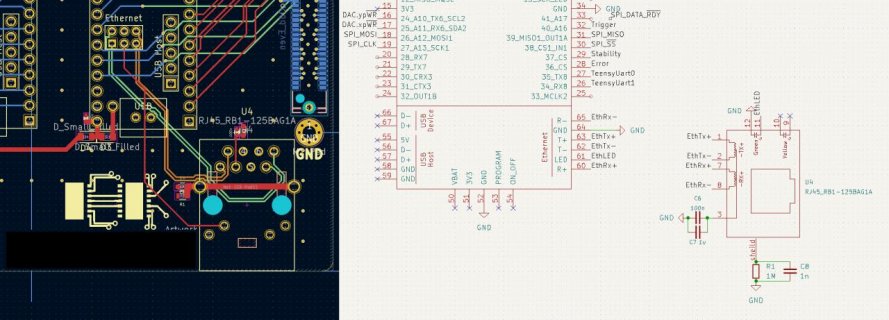Hi All,
I'm having trouble getting a successful ping from my teensy 4.1 project using Ethernet. All I really need at this stage is to get a ping through to confirm the hardware is working.
For code, I've used the example chat server, just changing #20 to #include <NativeEthernet.h>
For the hardware

What I'm getting is a successful compile/program, Serial reports the Ip address, green light on the ethernet is lit/blinks, but I can't get a ping. I can ping another device using the same cable and port.
Any thoughts on what I'm doing wrong?
thanks
Ed
I'm having trouble getting a successful ping from my teensy 4.1 project using Ethernet. All I really need at this stage is to get a ping through to confirm the hardware is working.
For code, I've used the example chat server, just changing #20 to #include <NativeEthernet.h>
For the hardware

What I'm getting is a successful compile/program, Serial reports the Ip address, green light on the ethernet is lit/blinks, but I can't get a ping. I can ping another device using the same cable and port.
Any thoughts on what I'm doing wrong?
thanks
Ed

